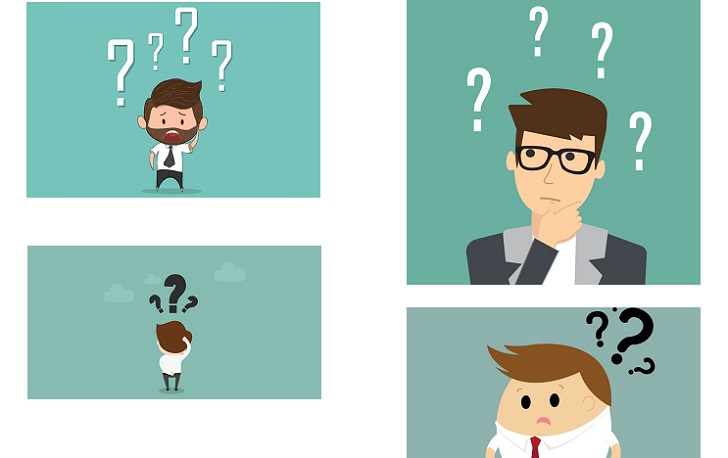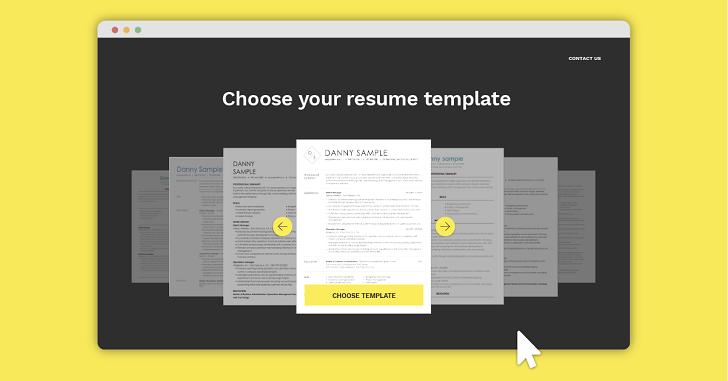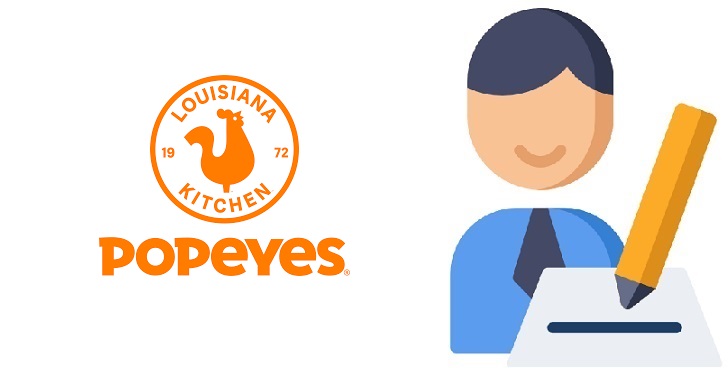What to Expect During a Job Interview
Today, for almost every job you need to go through an interview process. Although the questions may vary from company to company, usually the job interviews have similar patterns and structure. We know that regardless of your age and position, interviews can be a quite intimidating experience. In this guideline, we are going to prepare you for pre-interview, during interview and post-interview stages. If you know what is waiting for you in these stages, you can perform a lot better during the interview. Let’s get started!
What is an interview?

Simply put, an interview is a meeting between the interviewer and you, to decide whether you are a good fit for the company or not. The interviewer could be your potential manager or an HR specialist. Keep in mind that there could be multiple interviewers for certain positions or companies. Although usually, the interviews take place in person or sometimes in a group setting, they can also be held through phone and video calls. You should see the interview as an opportunity to highlight your skills and ensure the potential employers that you are the right candidate for the company.
The Pre-Interview Phase
Every step you take during the job application process is considered as the pre-interview phase. It means supporting the required documents and materials such as resume, cover letter, or portfolio in order for your assets to be evaluated by the recruiter. If you are a good fit for the company, most probably you will be contacted through e-mail or phone call to invite you to an in-person interview. It is important for you to have answers to the general possible questions before the in-person interview invitation. These questions can be about your previous experiences, background, and your interest in the company related to your provided documents. Be confident and answer their questions calmly and kindly. It is a good sign that they want to get to know you better!
During The Interview: The Beginning Phase
When you arrive at the place interview is going to take place, you should find the reception desk. Introduce yourself and most probably you will be kindly asked to sit in the waiting area until the hiring manager is ready to see you. You should not check your mobile constantly if you do not want to be evaluated as disinterested. As we mentioned before, a hiring manager could be the person you will work the most closely with or an HR specialist or perhaps, both. After the hiring manager greets and escorts you till his/her office, it is likely that he or she will initiate small talk with you(questions about your commute, weather, if you had any trouble finding the interview location, etc.). You should answer them kindly and show that you can relate to anybody even under stressful circumstances by asking questions to keep the conversation flowing. You can ask questions like “How long have you been in this location?” to show you are relaxed and confident. Although the interview has not started officially, it is crucial to be attentive. Although not every interview is the same, it is like that The interviewer will begin with general information about the company and details about the position. You may take notes to remember at least one job-related question to be asked later. Once the interviewer is done with these, it is time to evaluate your qualifications to see if you are a good fit for the job by asking you a wide range of questions. The interview questions can be general, need-based, behavioral, situational verification, case interview, or in-depth questions. Let’s have a look at what type of questions these are.
General Questions
General questions function as ice-breakers to help you get comfortable. They can be listed as: “Can you tell me a little bit about yourself?” “How did you hear about this position?” “What do you know about the company?” “Why do you want to work for our company?”
Behavioral and Skills-Related Questions
The purpose of these questions is to evaluate whether or not if you have the right personality and work ethic for the job. Some examples of behavioral and skill-related questions are: “What are you looking for in a job?” “Where do you see yourself in five years?” “What do you expect from your manager and team?” “Why did you leave your last job?”
Need-based Questions
These questions are about evaluating your expectation regarding the position and what the company needs from you. Let’s look at the examples: “When could you start working?” “Are you willing to travel as part of this job?” “What are your expectations for pay?”
Verification Questions
These questions are asked in order to check the information in your resume. It would not be wrong to say that the interviewer already knows the answers but just want you to provide more information about yourself, such as how many years you have spent in your last job and what Gpa was etc.
In-Depth (Case Interview)Questions
The purpose behind these questions is to measure your industry knowledge. These questions can be about industry insight or actual business scenarios. For instance, if you are applying for a developer job, they may ask you how to handle a certain problem regarding your profession such as “How would you increase the internet speed of slow functioning panel?”
Situational Questions
These types of questions are highly hypothetical where the interviewer creates scenarios related to your position and work environment. The purpose of these questions to see how you would handle a certain situation. For instance, “Tell me how would you deal with a co-worker who isn’t doing his/ her fair share of the work.” The best way to answer this type of question is to give examples from your past experiences to highlight your problem-solving skills.
During The Interview: After The Questions
The interviewer asked you a round of questions for half an hour or more and now he/she wants to know if you have any questions about the position or the company. At this moment, you have two opportunities. The obvious one is that you can get clarity about the job. You may ask any question in your mind such as ‘What do you see as the main challenge for this job? ‘Do you offer opportunities for training?’
However, the most important opportunity at this phase is to sell yourself to the interviewer. What do we mean by “selling yourself”? Well, you can show your interest in the role by indicating that you have already done your research about the position. While the interviewer is trying to figure out if you are a good fit for the company, you can express your willingness and motivation. For some jobs, it might be required to give a presentation about a certain topic to the staff panel or managers after the questions phase. However, you would be notified in advance for this kind of evaluation process.
After “the questions” phase, it is likely that the hiring manager wants to give you an idea of the work environment by giving you a tour or even introducing you to the current employees. Take this opportunity to assess the workplace environment. Thank the interviewer for her/his time to show you the workplace and this interview opportunity.
Waiting to Hear Back
It is reasonable not to expect the result of the interview immediately. However, if you have not still been informed about it, feel free to ask when you will hear back with an answer before you leave. At this point, the interviewer should not be the only one who is thinking whether or not the position is a good fit for you. You should also begin to consider the work environment and what will be expected of you. Depending on the information you gather during the interview, take your time to evaluate if this position is a good fit for you.
The Post Interview Phase
It usually takes a week or two to hear a response from the company. For some companies, it may take a longer time depending on how they conduct the interviews. It is possible that some companies do not notify people who they haven’t chosen to proceed with. You may receive a call offering you a job or you might be invited to another round of interviews if the company is between multiple prospective applicants. When you hear back from the company but not offered a job, do not be demoralized. The interview process itself is a valuable experience to practice your communication skills and understand yourself better regarding what type of job you want depending on your skills and personality.
Other Types of Interviews
Apart from traditional interviews, you may encounter different types of interviews which are listed below:
Multiple Interviewers: The company may choose to create a panel with several interviewers asking you different questions. Another way of conducting an interview with multiple interviewers is for you to meet each one of them at a time. For instance, if you are applying for a flight attendant job in a well-recognized airline, it is highly likely that you will be interviewed by multiple people at the same time, including even a psychologist. Keep in mind that the questions will be a mix of different types of questions we discussed before. So you have nothing to worry about.
Group Interviews: For some jobs, the company may interview you with other applicants. In this type of interview, the interviewer usually creates scenarios and wants you to handle the hypothetical problem by discussing the possible solutions as a team.
Bonus: How To Prepare For An Interview
As we discussed before in the article “How to Cope With Pre-Interview Stress”, there are ways to tailor your interview skills in order to have a successful interview.
1) Check The Job Description: Read the job descriptions and find out if you have relevant experience, if you have, try to highlight them during the interview.
2) The Question: Why are you interested in this position? You should prepare answers to all possible questions in advance. Nevertheless, this question is likely to differentiate you from other candidates, so dwell on it.
3) Research The Company: During the interview, it is important you show that you know the company culture and you are excited to be part of it because nowadays almost every company looks for candidates who share similar values. In order to have an idea about the company, you may check the company’s website, especially the “About Us” section and research other sources such as industry magazines, company reviews, and other websites revealing related information before you go to the interview.
4) Practice The Interview Etiquette: Your body language is as important as your answers. Remember to greet everyone politely, control your body language, shake hands firmly, make eye contact, look attentive, and smile.
5) Ask Relevant Questions To The Interview: When you are researching the company and the position, prepare several insightful questions to ask in order to demonstrate that you are well-prepared for this job. In this way, you can also avoid any uncertainties that may affect your arrangements later.
6) Practice Your Answers: Make a list of possible questions and try to find the right answers for them. Later on, try to practice your answers multiple times either with yourself or with the help of a friend or family member. The key here is to ensure that you take this practice seriously. When you prepare yourself for every possible scenario, you will be much more comfortable and confident during the real interview.
7)Pick The Right Outfit: It is important not to leave to the last minute to decide on what to wear. You need to check if the company still has a traditional work environment or it is rather casual so that you can dress accordingly.
8)Prepare Your Documents: It is always a good idea to bring your CV with you. However, depending on the job you may want to think about the documents you should take with you such as references, resume, or additional documents like a portfolio or presentation.
9) Plan Your Commute: Check where the interview is going to take place and plan how to be in there on time. Do not leave it to the last minute and try to involve every possible misfortune, like traffic, bad weather, rush hour, etc. Being punctual is extremely important for every job so do whatever it takes in advance in order not to be late.
Source: 1 (Access: May 12, 2020) 2 (Access: May 12, 2020) 3 (Access: May 12, 2020)


